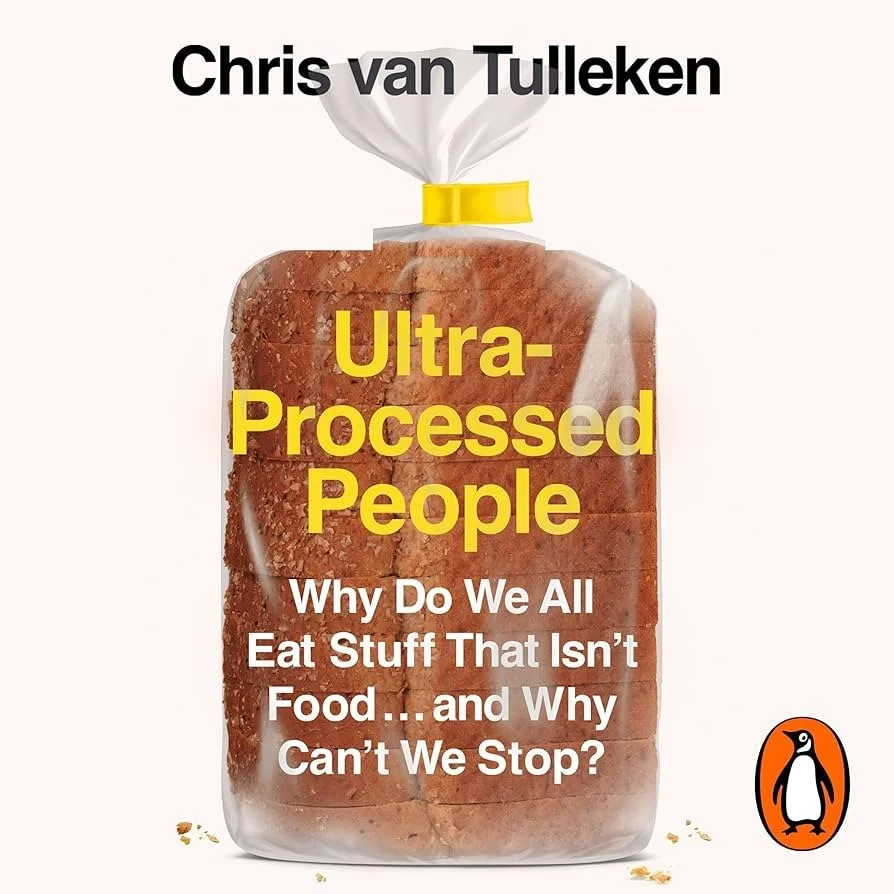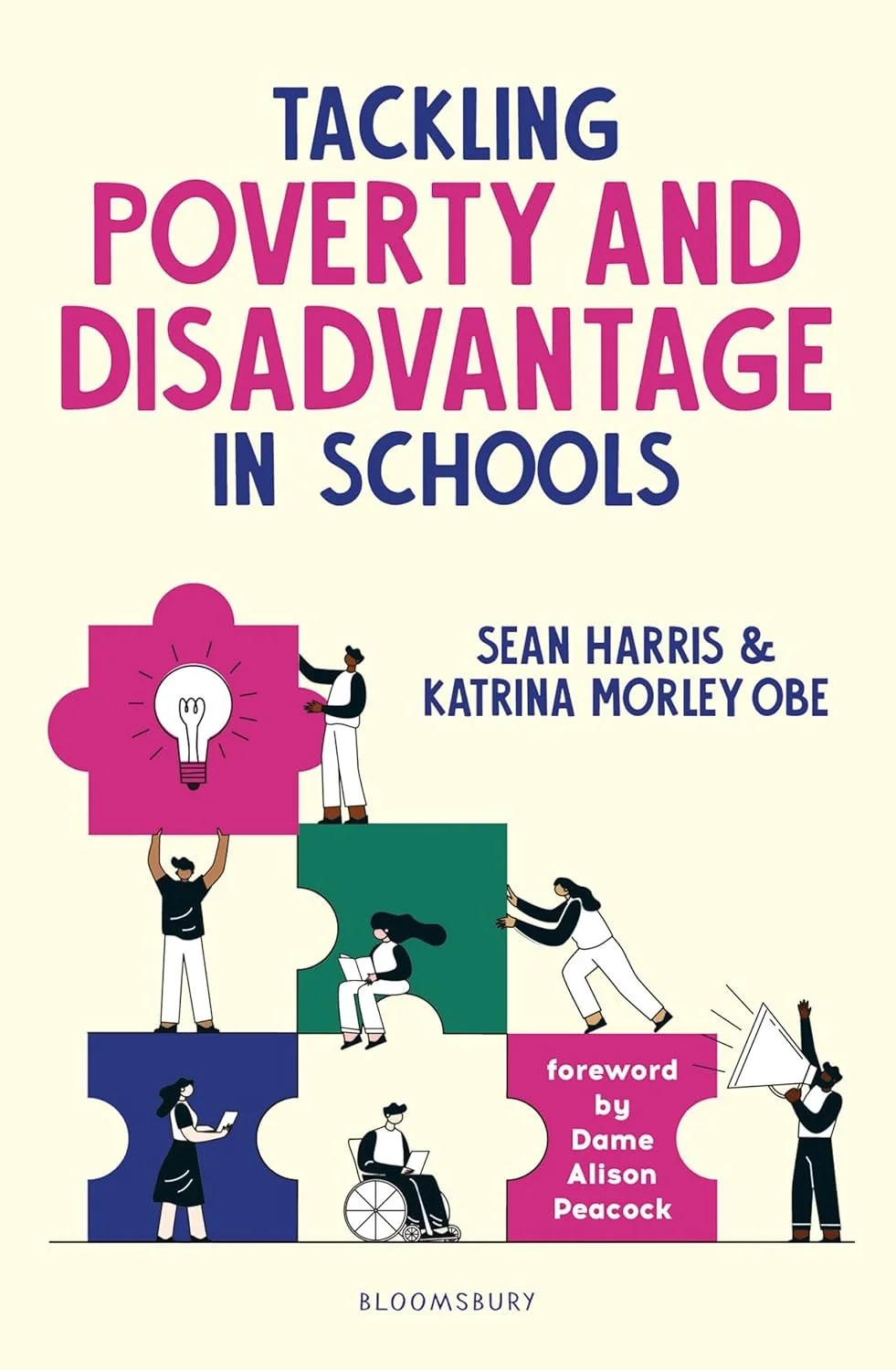Welcome to the third edition of the This is the North podcast newsletter.
The Hidden Forces Shaping Our Health: A Conversation on Commercial Determinants
by Alison Dunn, with insights from Professor Mark Petticrew, May van Schalkwyk, and Dr. Chris van Tulleken
From Newcastle to Manchester, Leeds to Liverpool, our Northern communities face a silent challenge that affects our health every day: the commercial forces that shape what we eat, drink, and how we live. This week's newsletter reflects on a recent conversation I had the privilege of hosting with three distinguished experts who unveiled the often-invisible ways big business influences our wellbeing.
Understanding Commercial Determinants of Health
My conversation with Professor Mark Petticrew from the London School of Hygiene and Tropical Medicine, May van Schalkwyk from the University of Edinburgh, and Chris van Tulleken from University College London began by demystifying what experts call "the commercial determinants of health" - essentially how businesses, their products, and their practices shape our health outcomes.
The alcohol industry earns a significant proportion of its profits from consumption that causes harm.
As Mark explained, these commercial influences affect "what we eat, what we consume, what we wear" - forming an environment that "strongly drives our health." It's not just the physical environment of air and green spaces that affects us, but the commercial landscape we navigate daily.
The Modern Challenge
Perhaps the most eye-opening aspect of our discussion was how these industries have successfully framed public health issues as matters of personal choice and responsibility. As Chris noted, "For a very long time, we've thought about these commercial determinants of health as being issues of choice and responsibility."
This narrative serves these industries well. After all, if health problems are merely the result of poor individual choices, then corporate practices need not change. The reality, as our experts revealed, is far more complex:
Ultra-processed food companies design products to be "sticky and consumed to excess".
Gambling corporations rely on harmful consumption patterns for their business model.
These profit-driven models result in a troubling reality: many industries actively depend on harmful consumption to maintain their bottom line, a stark contrast to their public messaging about moderation and responsible use.
The Misinformation Challenge
The conversation took a particularly concerning turn when we discussed how commercial interests actively work to misinform the public. Mark shared shocking insights about how the alcohol industry has fought to prevent public awareness of cancer risks:
"The alcohol industry has used every tactic... to prevent the public from knowing about the harms of alcohol consumption, not just cancers but other harms as well.
While cigarette packets carry clear warnings about lung cancer, alcohol products don't mention their link to breast cancer - a particularly troubling omission given the industry's need to "grow its female markets."
Final Thoughts
Truth is that change begins with awareness. I found myself during this conversation having those "Wait, how did I not see this before?" moments - particularly regarding the interlinked nature between the gambling industry and bodies such as GambleAware, which profess independence when the truth is far from it. That moment of revelation - when invisible systems suddenly become visible - is exactly where transformation begins.
People aren't inherently bad. But I guess the main takeaway I'd like to leave with you today is the power we all possess in curiosity. Only by understanding the commercial forces shaping our health, may we take the first step toward our collective understanding and become key drivers of change - both individually and as Northern communities committed to a healthier future.
Until next week,
Alison Dunn
Listen to the full This is the North podcast:
> Spotify
> Apple Podcasts
If you enjoyed this newsletter and/or the podcast episode shared, please like, share and subscribe. It takes less than 10 seconds to do and would make you part of something essential: a community of people who believe transformative conversations can become the catalyst for positive change.
This is The North Podcast is your source of transformative conversations. An intentional challenge to the systems holding back the North of England. Hosted by Alison Dunn, an award-winning charity chief executive and former solicitor. This podcast is supported by Society Matters Community Interest Company and is dedicated to curating and sharing knowledge, powering the change we need for a more equal and inclusive society. Subscribe to never miss an episode and join our mission to build a stronger, more equitable society for all. This podcast is produced by Purpose Made, empowering change through intentional leadership and shared knowledge.
The Northern Context
This issue has particular resonance for us in the North, where the availability and affordability of healthy options can be limited. As I noted during our discussion, there are areas in our region where there is a takeaway on every single corner... but there's no fresh fruit and veg.
This reality makes the industry narrative of "personal choice" all the more hollow. Chris put it best: "The argument that the industry creating the very conditions that are causing ill health should defend those conditions as the right of people who are already disadvantaged" is "deeply wrong."
The Conflict-of-Interest Problem
At the heart of our discussion was a troubling revelation about conflicts of interest. These harmful industries have infiltrated nearly every space that should serve as a check on their power:
As Chris observed, "Almost all of the information that you encounter as a consumer or an academic or a scientist around food... has been influenced or directly produced by the industry that profits from causing the problem."
So, what can be done? Our experts offered several pathways for change:
Industry-funded organisations like "Drink Aware" present themselves as independent educational resources.
Schools accept industry-sponsored educational materials
The Path Forward
End conflicts of interest
Create clear boundaries around industry influence
Even scientific advisory committees have financial ties to the very industries they should be regulating.
Restrict marketing and advertising
Limit the reach of harmful products
Consider legal action
Hold companies accountable for documented harms
Perhaps most importantly, we need what May called "policy imagination" - the creativity to envision new solutions for unprecedented challenges. As she noted, we must "recognise that we're in a world which is unprecedented in corporate power."
Our conversation revealed that while the commercial forces shaping our health are powerful, they are not invincible. Just as smoking rates have declined dramatically through concerted action, so too can we address these other commercial determinants of health.
For those interested in learning more, I recommend exploring the work of our guests, particularly Chris van Tulleken's book "Ultra Process People, Why We Eat Stuff That Isn't Food and Why We Can't Stop".
Implement comprehensive policy approaches
Address problems with multiple, interlocking solutions

Coming up on the podcast…
The next episode of This is the North features Brigid Jochen and Stefan Lacot of Ways to Wellness and offers a really thought provoking conversation about the impact of socio-economic stress and how this can evolve into or exacerbate persistent pain.
A deep dive into the archive…
My conversation with Professor Mark Petticrew, Research Fellow May van Schalkwyk and Associate Professor Chris van Tulleken reminded me of an earlier episode recorded with James Grimes, Head of Prevention at Gambling with Lives and now Director of Chapter One, in which he chronicled his own story of gambling addiction, highlighting the influence and power exerted by the gambling industry to keep us losing. If you enjoyed the discussion about commercial determinants of health with Mark, May and Chris, I’d highly recommend you take a listen to James’s episode too, you can find the link here.
If you’re interested, today I’m reading (or listening to) …
A great book written by Sean Harris, Doctoral researcher, education leader, journalist and Katrina Morley OBE, an educational engineer, and system leader entitled ‘Tackling Poverty and Disadvantage in Schools’.
The authors, Sean and Katrina are described as having “relentless determination to drive opportunities for all children” and to be fair, knowing them both as I do, I am not at all surprised to hear them described this way.
This book really is a must read for “every leader and teacher” in the system. If you haven’t already got your copy, please go and get one (and no, I’m not on commission, I just think it’s a really great example of how we can all play a part to ensure all kids have the best possible start, education is a critical part of shaping their futures.
And if your someone who likes to listen to a podcast or two, check out Mambition hosted by Tiffany Scott and Alex Morgan, episode 58 “The Five House Revolution: How two mums are dismantling the motherhood penalty”. This is a really thought provoking discussion with Amy Grilli and Dr Emma Harvey is about the role and obligation of leaders of all shapes and sizes to ensure women returning from maternity leave are able to fulfil their potential but on terms that better suit the realities of bringing up a young family in the 21st century.
As an early adopter of the four-day working week, this conversation got me thinking really hard about what more we can do to integrate a version of this model into our business, watch this space!


